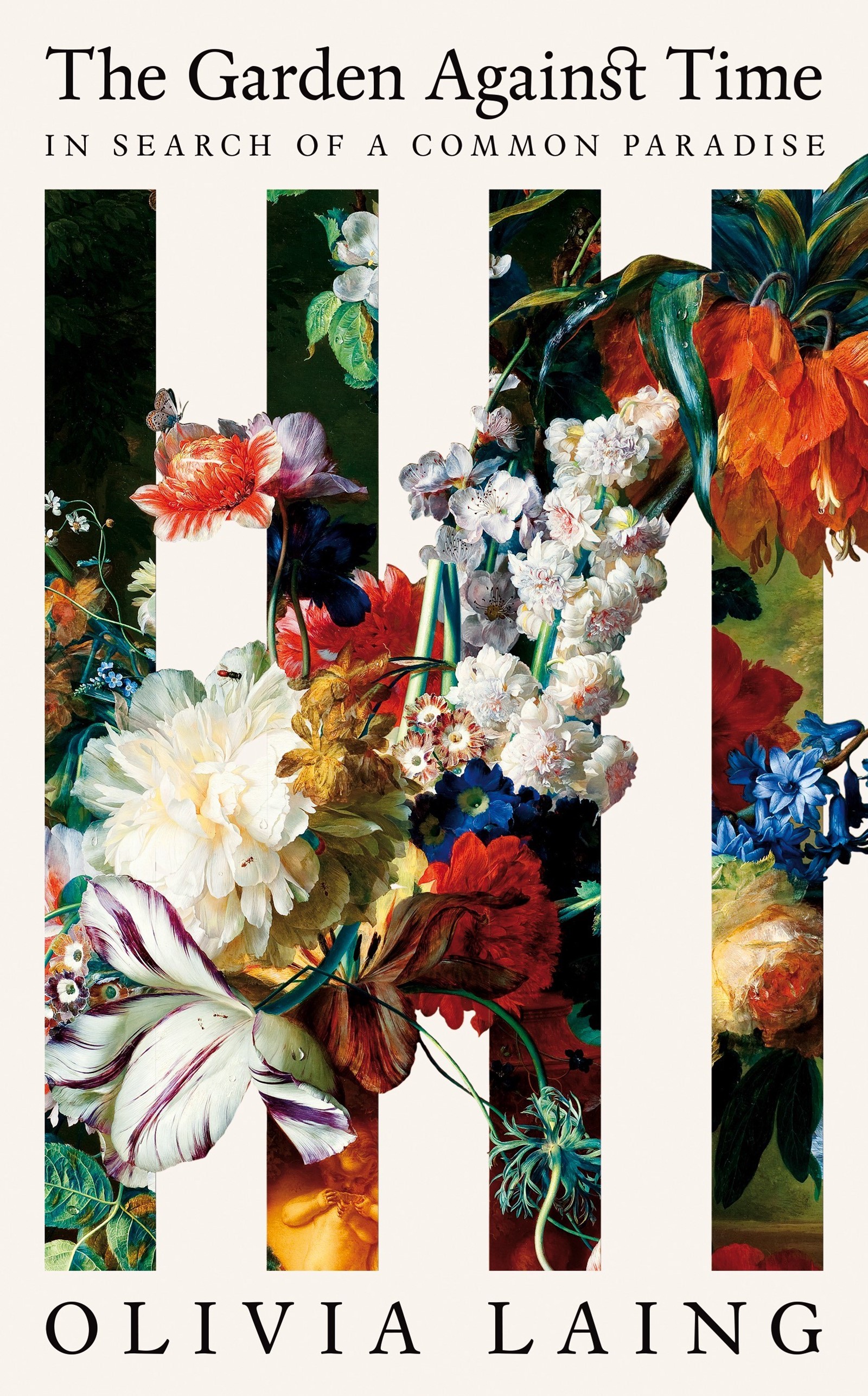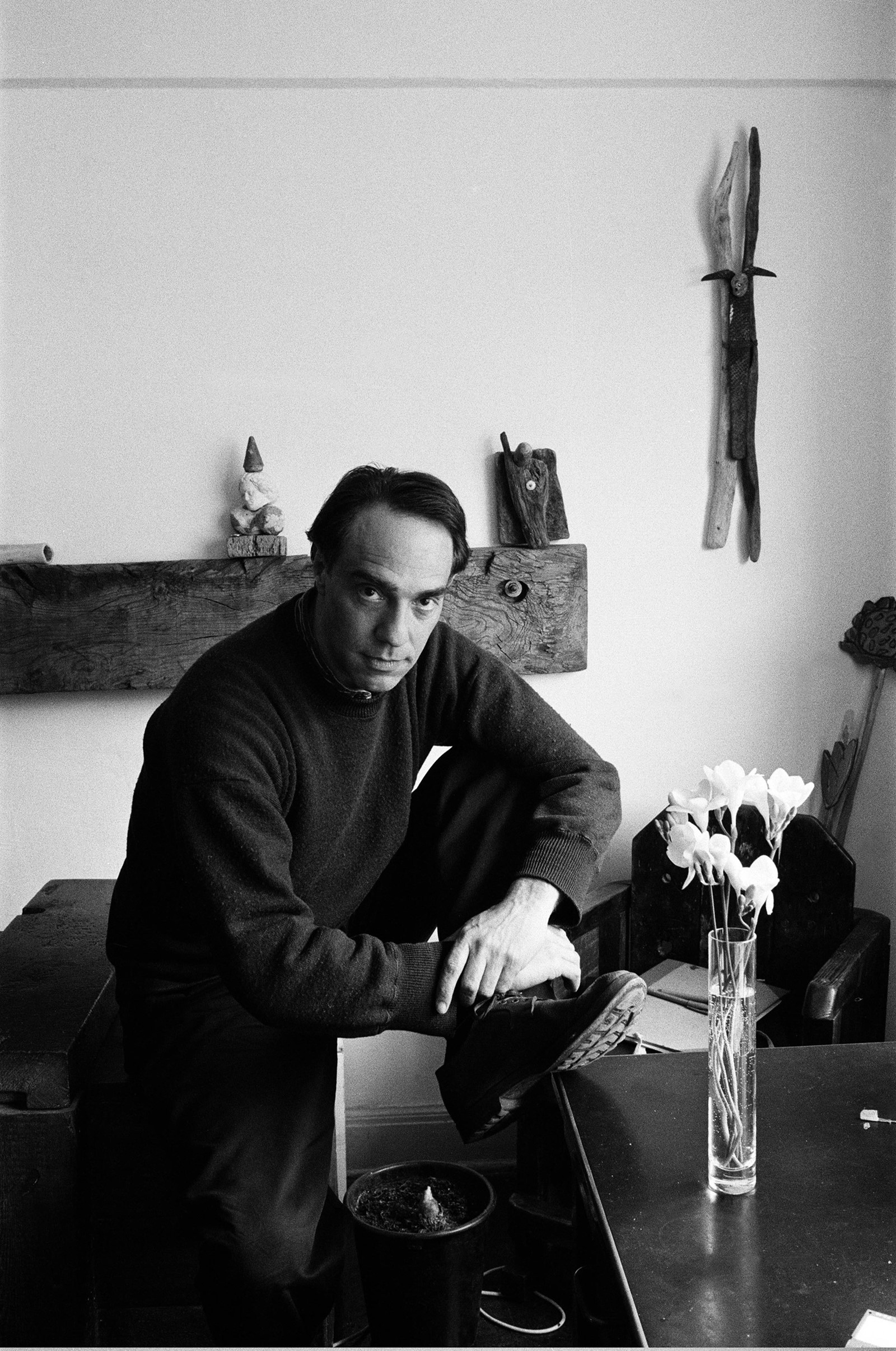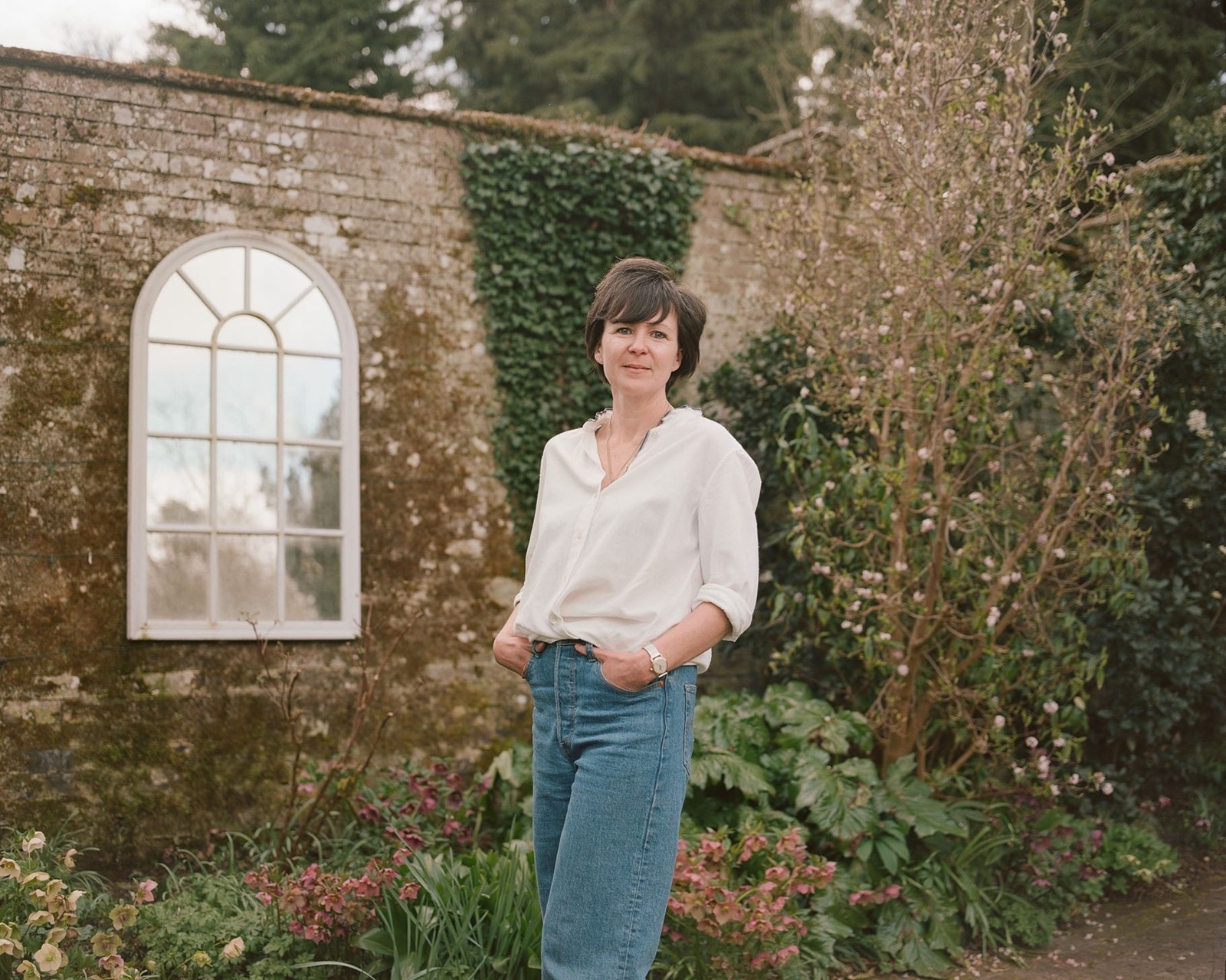“You must have a garden, though it be no bigger than a pocket-handkerchief; you must have one bed at least to know what you are treading on,” writes Karel Capek in The Gardener’s Year. “Then, dear friend, you will see that not even clouds are so diverse, so beautiful, and terrible as the soil under your feet.” Writer Olivia Laing takes this provocation head-on in her ardent and fascinating new book The Garden Against Time. Laing – who trained as an herbalist and worked as an environmental activist in her youth – unearths a complex history of the garden, revealing how they have functioned as both a repository for unchecked wealth and power, and a refuge for “rebel outposts and dreams of a communal paradise.” Laing explores well-known representations – Milton’s Paradise Lost and the swirling floral designs of William Morris for example – while also probing the garden’s shadier corners.
Laing moved to a house in Suffolk with her partner Ian in 2020, just before the Covid-19 lockdown began. She kept a diary while she restored the house’s garden, originally designed by landscape architect Mark Rumary. That demanding – yet invigorating – experience and the ideas it engendered led to the writing of the book.
Like Laing’s other books – The Lonely City, Funny Weather and Everybody among them – The Garden Against Time is fiercely and unapologetically political; it is also resolutely hopeful. And like the most successful gardens, it is undeniably infused with the maker’s vision for the world. Laing’s is no simple Eden or utopia; it is a commons, a space that belongs to everyone where all can participate, imperfect but ongoing.
Below, AnOther spoke with Olivia Laing about The Garden Against Time.

Elodie Saint-Louis: Why did you want to write a book about gardens?
Olivia Laing: It’s a book that has long roots in my life: my childhood, my love of Derek Jarman, my background in environmental activism and herbalism. All of those things were bubbling away. This book really is the conclusion of a trilogy, with The Lonely City and Everybody. The Lonely City explores the purgatory of alienation, those frozen states of longing for connection. Everybody is about the hell of embodiment, prejudice, and violence. In this book, I wanted to explore paradise; I wanted to think about the paradise of a garden and utopian dreams.
I also wanted to question the idea of paradise and think about who’s been excluded, what is paradise’s cost, who has paid the price for it, and to try and search through history and find rebel paradises, Edens that have been inclusive and radical – queer paradises, gardens for refugees in war. When the pandemic happened, and people were confined, it became clear that the garden was a very political space that some people had access to and some didn’t. It brought all of those questions to a head for me.
ESL: You beautifully translate the joy of gardening, it made me want to scurry back to my own as I was reading. But it feels important that at the same time, this is a very political book.
OL: I don’t want it to be an escape. I also don’t believe the garden is an escape. People garden in so many different ways. There are certainly types of gardening that are like, “This is my retreat into privilege and the walls are up, no one else can come in, and I’m safe and luxurious here.” But other people have gardened in much more engaged ways – with the world, other people, and species. I wanted to tell those stories. I wanted to make people fall in love with a politics they perhaps don’t initially share. We’re in a moment that’s so divisive and binary, and people have picked their sides. I wanted a different kind of conversation to happen in this garden.
“We’re in a moment that’s so divisive and binary, and people have picked their sides. I wanted a different kind of conversation to happen in this garden” – Olivia Laing
ESL: While reading, I found myself interested in the idea of the garden as a refuge or alternative to the closet. This is not something you state explicitly but is rather expressed through your writing on Derek Jarman’s garden and Benton End in Suffolk.
OL: That is so much of Derek Jarman’s message: ‘We will make our own Eden’. He says really explicitly in Modern Nature that he's in search of making this other region. When I was researching those stories, I realised how literally true it was that Benton was a refuge. They were taking in men who had just come out of prison for the offence of being homosexual. They were making it a sanctuary where people could play, flirt, have sex and engage with each other without feeling that they were being watched, scrutinised, surveilled, and potentially at risk of losing their liberty because of their sexuality. As a trans person who grew up in a gay family during Section 28, which was the period when the queer family was explicitly delegitimised by the government, the garden and the desire for the garden as this place of safety – but also pleasure and license and play – felt, and still feels, urgent to me.
ESL: Did you have an intended audience in mind when writing the book?
OL: My core audience is very left-wing, with radical politics, often queer and young, so I’m always writing for those people. But with this book, I wanted anyone to be able to enter it. I wanted it to feel genuinely like a public garden. I deliberately tried to make it a place where people with totally different politics from me could come in because they were lured in by the flowers or because they wanted to know about restoring a garden. I wanted them to feel really safe and welcome and then to start thinking about these questions of exploitation, the enclosures, and the role of plantation slavery in the making of English gardens.
It’s an ambitious book. I’m ambitious for a different kind of readership. I want people to fall in love with the idea of a kind of commonness, a common space and open space that perhaps they found frightening.

ESL: One of the phrases that you use in the book is “dead silence.” There’s this moment where you say explicitly, “Let’s slice through that silence.” Why did it feel so important for you to make that insistence?
OL: I started writing this during the Black Lives Matter movement. I watched what happened in this country, particularly when the first steps of breaking that silence around the relationship between slavery and gardens happened. A report was published by the National Trust and all hell broke loose on the rightwing. Politicians and journalists went absolutely crazy and were furious because of the silence breaking. They couldn’t bear the sense that their history or their sense of self was implicated in the violence of slavery and colonisation.
There is no question that we have to carry on breaking that silence. All I’m trying to do is show the reality of the situation, the manoeuvre people made to make enormous fortunes from massive exploitation of stolen lives and then launder their money by way of garden-making. You can see that process so explicitly with the Middletons, the family I focus on. They’re like the Sackler family, except instead of using art to wash their wealth and wash their reputations, they’re making these massive, vast, opulent gardens. They entice the royal family to see them. They raised themselves up through the class ladder by having gardens. That process needs to be laid bare.
ESL: Jarman comes up time and time again in this book. What is it about him and his garden that have remained meaningful to you?
OL: He was a very particular person because he had an almost infinite capacity for hope, and it wasn’t naive hope. He knew exactly how difficult things were and how hated he was as a gay man, and then as a gay man with Aids. He understood the intense loathing that the government or the nation had for him and his life. At the same time, he stayed buoyant, and reckless and generous. He lived by a kind of ethos that I find so inspiring as an artist. He wasn’t interested in private wealth and private success. He was interested in constantly making new things and doing things with other people. He was interested in fun – a real sense of having joy in your day-to-day life – but also in making things that are of extraordinarily high value. He died decades ago, and yet that irrepressibility and absolute integrity and authenticity that he manifests is so rare that I think people just fall in love with him.
The Garden Against Time: In Search of a Common Paradise by Olivia Laing is published by Picador, and is out now.
